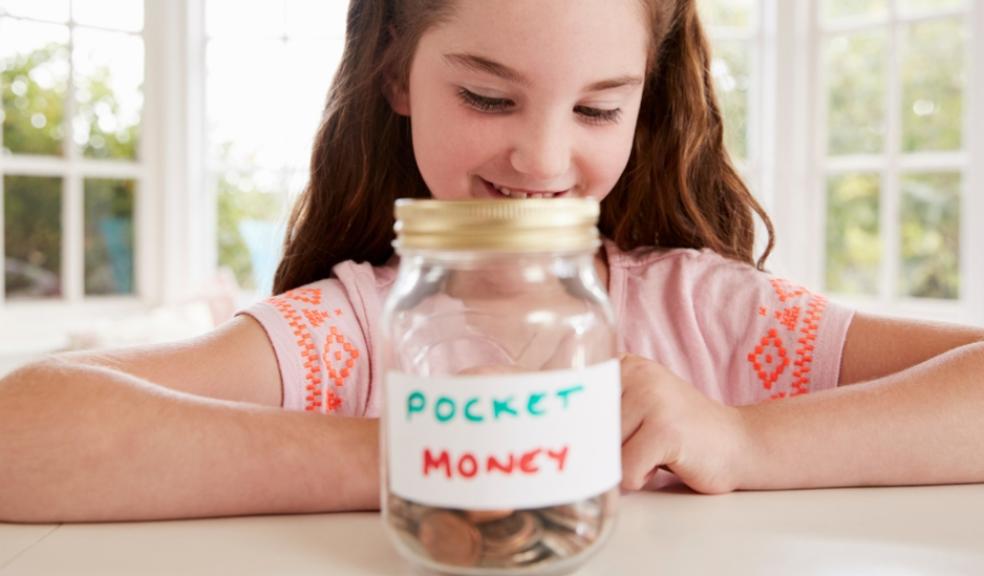
How To Set The Ideal Pocket Money For Kids: A Guide To Financial Education
Just how much pocket money should you give to your child?
In many cases, the question is hard to answer, or at least depends on various factors, such as the financial condition of the family, the age of the child, among others.
Jason Higgs, Senior Deals Strategist at Bountii, delves into the importance of financial education from a young age and provides insights into factors to consider when setting allowances.
Pocket Money and Income Streams
A May 2024 study showed that in the UK, 30% of families pay pocket money as part of a regular routine (down by 2% the previous year), with children getting an average of £3.78 a week (down by 10p from last year).
The study said that pocket money now makes up just 14% of children’s income in the UK. Children are finding new income streams from chores or entrepreneurship – earning a kid an average of £479.96 a year (or about £9.23 a week).
Of course, these incomes differ for age groups. For instance, a six-year-old kid on average earns £5.68 a week, while a 17-year-old can make as high as £24.71 on a weekly basis, a nearly fivefold increase.
Another study showed that 16-year-old kids received more pocket money compared with any other children's age groups in the UK between March 2022 and February 2023.
The study also showed there was a clear correlation between the age of the child and the amount they receive, with children aged six getting less than a third of what 16-year-old children would earn on a weekly basis.
However, the weekly amount of pocket money actually dropped off as kids grew from aged 16 to 17, from £12.75 down to £12.59.
Top Pocket Money Earners
According to one study, the top five paid chores for children in the UK (as of 2021) were:
- Washing the car
- Mowing the lawn
- Raking leaves
- Washing windows
- Gardening
These tasks not only provide an opportunity for children to earn money but also contribute to the household.
Equally important, the earnings of the children highlight the importance of financial education and teaching children about responsible money management from a young age.
The Importance of Financial Education
Financial education is a cornerstone of preparing children for adulthood. By teaching children about money management early on, parents can instill habits that lead to financial independence and security.
“Introducing children to various financial concepts and insights through pocket money can give them valuable lessons when it comes to budgeting, saving, as well as making informed spending decisions," Jason says.
Factors to Consider
When deciding the ideal amount of pocket money, parents should consider several factors:
Age of the Child
Younger children may have fewer financial needs and responsibilities compared to teenagers. Adjusting the allowance as they grow can reflect their increasing capability and understanding of money.Financial Goals
Understanding what the child is saving for—whether it's toys, gadgets, or bigger goals like a bike or video game console—can help determine an appropriate allowance.Family Budget
The overall financial situation of the family plays a significant role. It's important to balance generosity with financial sustainability.Desired Level of Independence
Encouraging independence can mean providing enough money for the child to manage small expenses on their own, learning from both successes and mistakes.“Pocket money should be a useful tool for teaching financial responsibility to children, not a means of spoiling them. Parents should carefully review the financial situation of their family and provide reasonable allowances that can align with their budget, values, and goals,” Jason says.
Tips for Parents
To ensure that pocket money serves as an effective learning tool, parents can follow these tips:
-
Establish clear expectations: Tie pocket money to specific chores or responsibilities, and communicate the expectations clearly.
-
Encourage saving and budgeting: Introduce the concept of saving and budgeting by suggesting that a portion of the allowance be set aside for future goals or expenses.
-
Involve children in decision-making: Allow children to participate in discussions about their allowance and how it should be allocated, fostering a sense of ownership and responsibility.
-
Lead by example: Model good financial habits by discussing your own budgeting and saving strategies with your children.
- Adjust as needed: Regularly review and adjust the allowance amount as your child grows and their needs change.
“By striking the right balance and providing guidance, parents can use pocket money as a valuable tool to instill financial literacy and responsible money management skills in their children from an early age,” says Jason.













